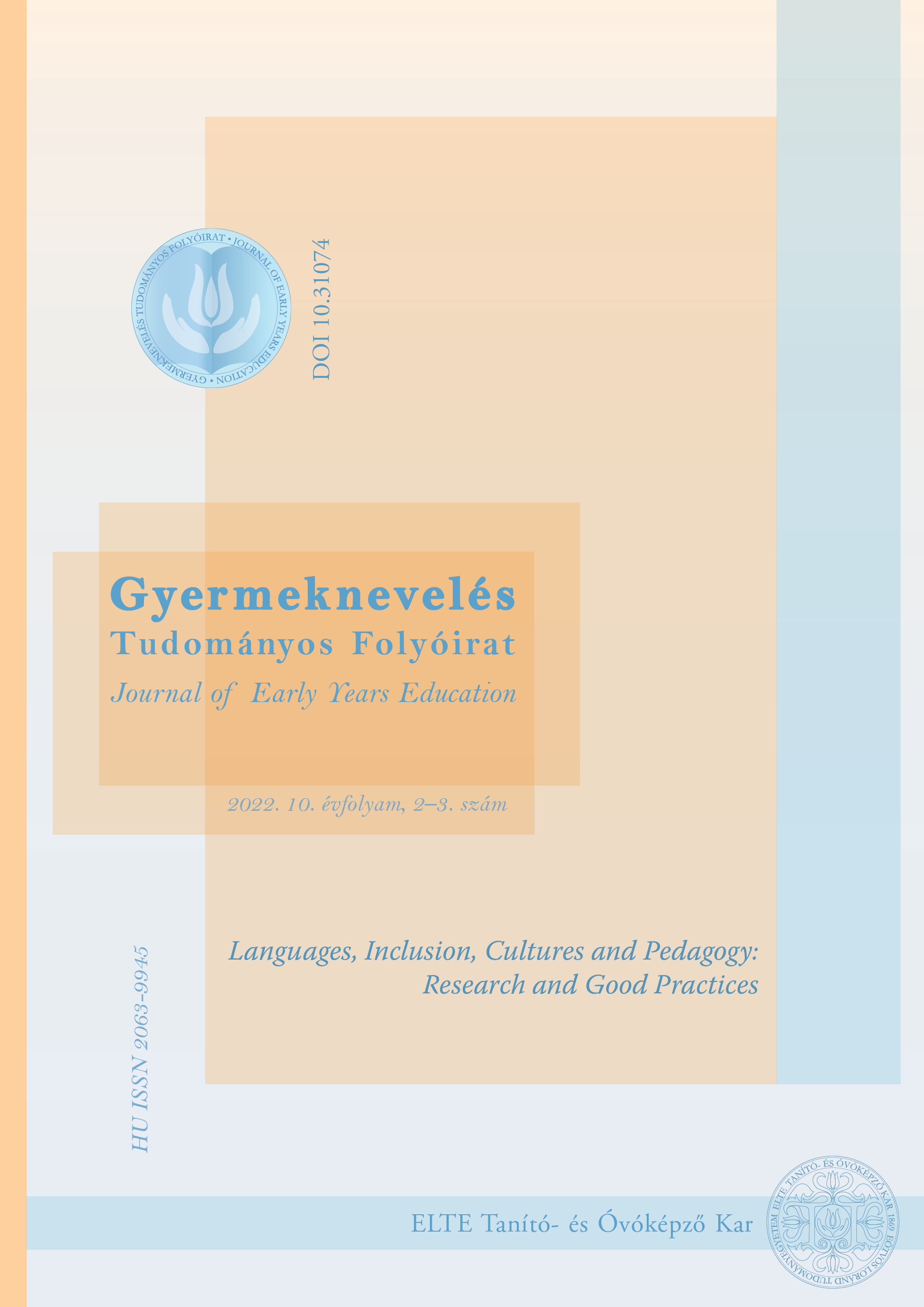Third-Culture Kids in early childhood education
DOI:
https://doi.org/10.31074/gyntf.2022.2.169.191Kulcsszavak:
early childhood education, Third-Culture Kid (TCK), cultural awareness, culturally considerate classroom, educators’ role, globalisationAbsztrakt
This paper’s purpose is to introduce the Third-Culture Kid (TCK) phenomenon and seek the significant aspects of a highly mobile lifestyle, focusing on their impact on young children learning in the early childhood education programme. Such features include the potential positive and negative consequences of growing up in a multicultural environment. Furthermore, this study dissects the question of whether young children should be directly exposed to cultural awareness at a young age, thereby highlighting educators’ crucial role in achieving culturally responsible pedagogy in the preschool context. Triangulation was used based on three methods of data collection. A quantitative survey positioned the voices of 140 Adult Third-Culture Kids (ATCK) in the forefront in order to examine their TCK experience. A qualitative interview focused on ten professional childhood educators’ practical knowledge. Finally, a qualitative case study exploring a TCK experience completed the survey. This research offers both a conceptual framework and practical understanding of the complex influence of the TCK lifestyle on children participating in early childhood education.
Letöltések
Hivatkozások
Adler, P. (1977). Beyond Cultural Identity: Reflections on Multiculturalism. Culture Learning, 24-41. http://www.mediate.com/articles/adler3.cfm
Anderson, K. L. & Davis, B. M. (2012). Creating Culturally Considerate Schools. Corwin. https://doi.org/10.4135/9781483387550
Apte, M. (1994). Language in sociocultural context. In R. E. Asher. (Ed.), The Encyclopedia of Language and Linguistics(pp. 2000-2010). Pergamon Press.
Atamaniuk, A. (2014). The terms “multicultural”, “cross-cultural”, “intercultural”. Meaning, differences, area of using. Undergraduate essay, Stuttgart Media University.
Baldock, P. (2010). Understanding Cultural Diversity in the Early Years. SAGE Publications Ltd. https://doi.org/10.4135/9781446288108
Bolon, A. S. (2002, October 26.). At Home Abroad / Third Culture Kids: Nowhere to call home but I like being a global nomad. The New York Times.
Downie, R. D. (1976). Re-entry experiences and identity formation of third culture experienced dependent American youth: an exploratory study. Michigan State University.
Duvalle, C. & Padmanabh, S. Third Culture Kids. https://www.internations.org/magazine/third-culture-kids-15290 (01.03.2021)
Fukui, M. (2015). Young Adult Third Culture Kid Identity Undergraduate thesis, Keio University, Minato, Tokyo.
Hayden, M. (2006). Introduction to International Education, SAGE Publication. https://doi.org/10.4135/9781848607866.n1
Lambert, W. E., & Klineberg, O. (1967). Children’s views of foreign peoples. New York: Appleton-Century-Crofts.
Melles, A. E. & Frey, L. L. (2014). “Here, Everybody Moves”: Using Relational Cultural Therapy with Adult Third-Culture Kids. International Journal for the Advancement of Counselling, 36, 348–358, https://doi.org/10.1007/s10447-014-9211-6
Moore, A. M. (2011). Confused or Multicultural: A Phenomenological Analysis of the Self-Perception of Third Culture Kids with Regard to their Cultural Identity. (Master’s thesis, Liberty University, Lynchburg, VA). http://digitalcommons.liberty.edu/cgi/viewcontent.cgi?article=1167&context=masters (01.03.2021)
Pollock, D. C. & Van Reken, R. E. (2009). Third Culture Kids: Growing up among worlds. Nicholas Brealey Publishing.
Ramsey, P. G. (2004). Teaching and Learning in a Diverse World (3rd ed.). Teachers College Press.
Random House Kernerman Webster’s College Dictionary, © 2010 K Dictionaries Ltd. Copyright 2005, 1997, 1991 by Random House, Inc.
Vyhmeister, E. (2015, May 26). Building Identity as a Third Culture Kid. https://www.youtube.com/watch?v=8RCmgMKJRy8
##submission.additionalFiles##
Megjelent
Hogyan kell idézni
Folyóiratszám
Rovat
License
Copyright (c) 2022 Szerző

This work is licensed under a Creative Commons Attribution-NonCommercial-ShareAlike 4.0 International License.

